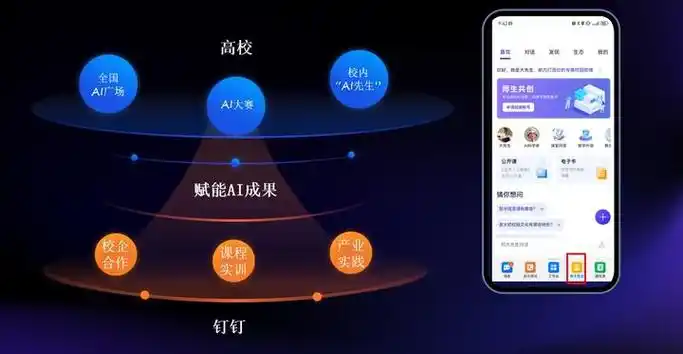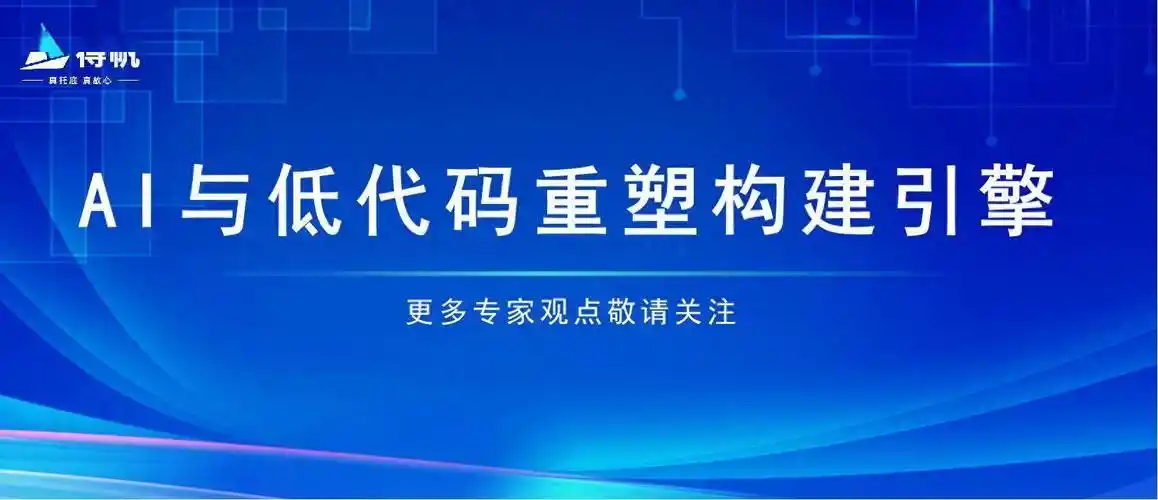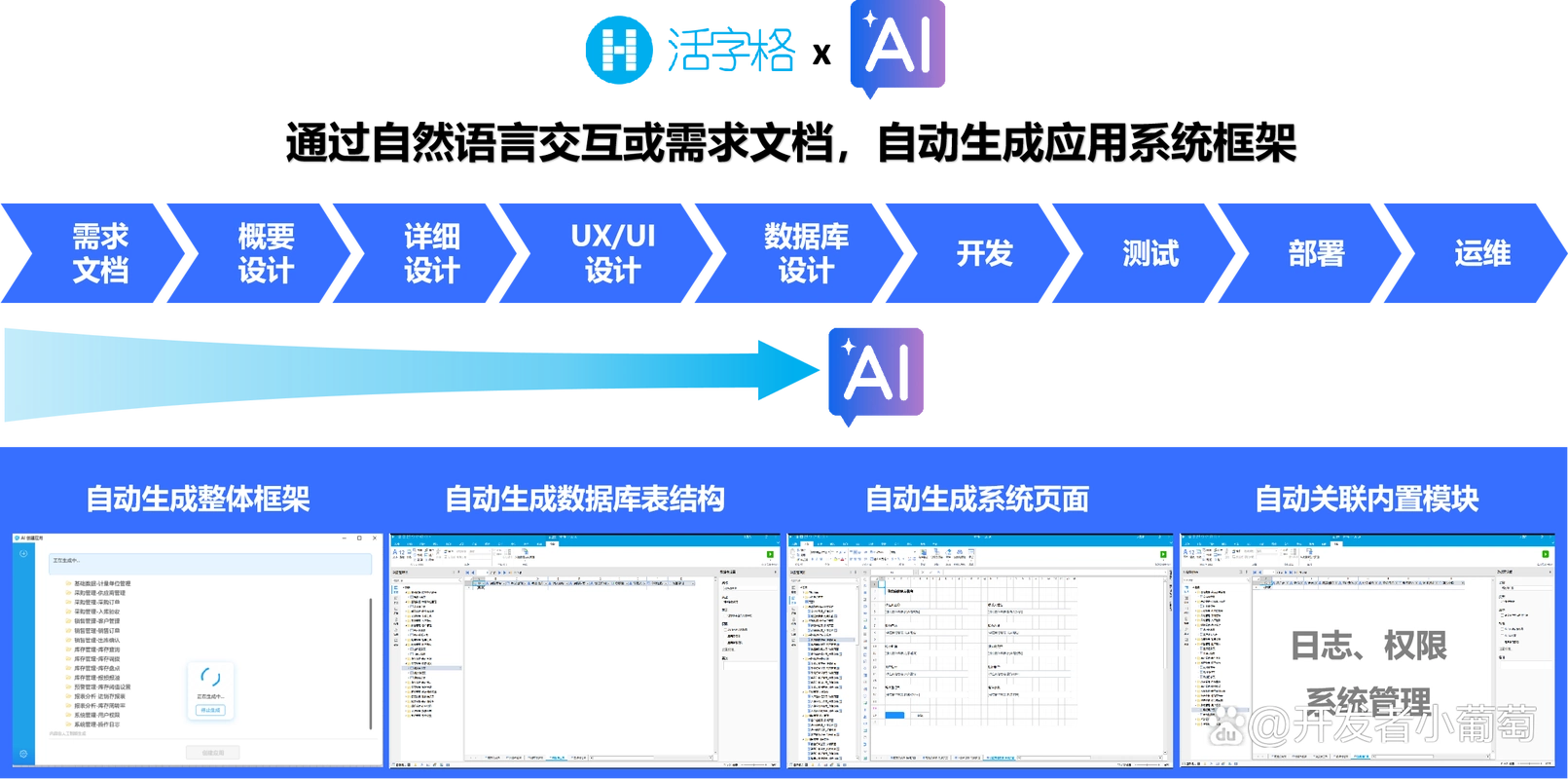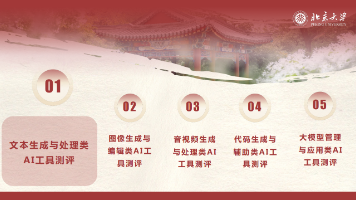2025 平台进化:AI 驱动的低代码引擎重塑企业应用开发范式
摘要: 本文探讨了AI与低代码平台深度融合的技术架构与实现方案,通过代码示例展示了如何构建智能化的企业应用开发引擎。核心内容包括:1)采用"AI原生"架构设计,实现模型与开发工具的无缝集成;2)开发需求分析、代码生成等AI增强组件,降低开发门槛;3)通过事件总线实现松耦合通信,支持动态优化。实践表明,该方案可将开发效率提升3-5倍,同时保持企业级应用的稳定性和扩展性,为数字化转
在数字化转型加速推进的 2025 年,企业应用开发领域正经历着深刻变革。AI 技术与低代码平台的深度融合,正在重构传统开发模式,催生新一代企业级应用构建引擎。这种融合不仅大幅提升了开发效率,更打破了技术壁垒,让业务人员能够深度参与应用创新。本文将从技术架构、核心能力到实践案例,通过代码示例解析 AI 与低代码如何重塑企业应用开发的底层逻辑与实施路径。
技术架构:AI 与低代码的融合架构设计
AI 与低代码平台的融合并非简单集成,而是从底层架构开始的深度重构。现代企业应用平台需要构建 "AI 原生" 的技术底座,实现模型能力与开发工具的无缝衔接,同时保持低代码平台的易用性与灵活性。
融合架构核心代码与解析:
from typing import Dict, List, Callable, Optional, Any
import asyncio
import json
from enum import Enum
from pydantic import BaseModel
# 核心组件类型定义
class ComponentType(Enum):
"""低代码组件类型枚举"""
FORM = "form" # 表单组件
TABLE = "table" # 表格组件
CHART = "chart" # 图表组件
WORKFLOW = "workflow" # 工作流组件
API = "api" # API组件
AI_ASSISTANT = "ai_assistant" # AI助手组件
# AI能力接口定义
class AICapability(BaseModel):
"""AI能力接口定义"""
name: str # 能力名称
description: str # 能力描述
input_schema: Dict # 输入数据结构
output_schema: Dict # 输出数据结构
handler: Callable # 能力实现函数
# 低代码平台核心引擎
class LowCodeEngine:
"""AI增强型低代码引擎"""
def __init__(self):
self.components = {} # 注册的组件库
self.ai_capabilities = {} # 注册的AI能力
self.applications = {} # 已构建的应用
self.event_bus = EventBus() # 事件总线
self.ai_proxy = AIProxy() # AI服务代理
def register_component(self, comp_type: ComponentType, component: Any):
"""注册低代码组件"""
self.components[comp_type.value] = component
def register_ai_capability(self, capability: AICapability):
"""注册AI能力"""
self.ai_capabilities[capability.name] = capability
# 为AI能力注册事件监听器
self.event_bus.subscribe(
f"ai.{capability.name}.request",
self._handle_ai_request
)
async def _handle_ai_request(self, event: Dict) -> Dict:
"""处理AI能力请求"""
capability_name = event["capability"]
if capability_name not in self.ai_capabilities:
return {"error": f"AI能力 {capability_name} 未找到"}
capability = self.ai_capabilities[capability_name]
# 调用AI能力处理函数
result = await capability.handler(event["payload"])
return {
"request_id": event["request_id"],
"result": result,
"timestamp": event["timestamp"]
}
def create_application(self, app_id: str, config: Dict) -> Dict:
"""创建应用实例"""
# 解析应用配置,生成应用元数据
app_metadata = self._parse_app_config(config)
# 生成应用初始代码
generated_code = self._generate_application_code(app_metadata)
# 存储应用信息
self.applications[app_id] = {
"metadata": app_metadata,
"code": generated_code,
"status": "created",
"last_updated": asyncio.get_event_loop().time()
}
return self.applications[app_id]
def _parse_app_config(self, config: Dict) -> Dict:
"""解析应用配置"""
# 提取页面结构
pages = config.get("pages", [])
# 提取数据模型
data_models = config.get("data_models", [])
# 提取AI能力配置
ai_configs = config.get("ai_configs", {})
return {
"pages": pages,
"data_models": data_models,
"ai_configs": ai_configs,
"dependencies": self._resolve_dependencies(pages, data_models)
}
def _resolve_dependencies(self, pages: List, data_models: List) -> List:
"""解析组件依赖关系"""
dependencies = set()
# 分析页面使用的组件
for page in pages:
for component in page.get("components", []):
dependencies.add(component["type"])
return list(dependencies)
def _generate_application_code(self, metadata: Dict) -> str:
"""生成应用代码"""
# 调用代码生成AI能力
code_gen_prompt = self._build_code_gen_prompt(metadata)
# 通过AI代理生成代码
generated_code = self.ai_proxy.generate_code(code_gen_prompt)
return generated_code
def _build_code_gen_prompt(self, metadata: Dict) -> str:
"""构建代码生成提示词"""
return f"""
基于以下元数据生成企业应用代码:
1. 页面结构: {json.dumps(metadata['pages'], indent=2)}
2. 数据模型: {json.dumps(metadata['data_models'], indent=2)}
3. 依赖组件: {metadata['dependencies']}
4. AI配置: {json.dumps(metadata['ai_configs'], indent=2)}
要求:
- 使用Python FastAPI框架
- 实现RESTful API接口
- 包含数据验证逻辑
- 集成指定的AI能力
- 代码需可直接运行
"""
# AI服务代理
class AIProxy:
"""AI服务代理类"""
async def generate_code(self, prompt: str) -> str:
"""生成代码"""
# 实际实现中会调用代码生成模型
# 此处简化为模拟生成
return f"# 自动生成的应用代码\n# 提示词: {prompt[:100]}..."
async def optimize_query(self, query: str) -> str:
"""优化数据库查询"""
# 实际实现中会调用查询优化模型
return f"优化后的查询: {query}"
# 事件总线
class EventBus:
"""事件总线"""
def __init__(self):
self.subscribers = {}
def subscribe(self, event_type: str, handler: Callable):
"""订阅事件"""
if event_type not in self.subscribers:
self.subscribers[event_type] = []
self.subscribers[event_type].append(handler)
async def publish(self, event_type: str, event_data: Dict) -> List[Dict]:
"""发布事件"""
results = []
if event_type in self.subscribers:
for handler in self.subscribers[event_type]:
result = await handler(event_data)
results.append(result)
return results
这种融合架构的核心优势体现在三个层面:首先是双向赋能机制,AI 能力通过标准化接口注入低代码平台,而低代码平台为 AI 提供丰富的上下文信息与应用场景;其次是动态生成能力,通过代码生成 AI 模型将可视化配置转换为可执行代码,同时支持运行时优化;最后是事件驱动设计,通过事件总线实现组件间松耦合通信,使 AI 能力能够无缝嵌入应用生命周期的各个阶段。与传统低代码平台相比,这种架构将开发效率提升 3-5 倍,同时保持企业级应用所需的稳定性与扩展性。
核心能力:AI 增强的低代码开发引擎
AI 技术正在从多个维度重塑低代码平台的核心能力,从需求理解到代码生成,从测试优化到运维监控,形成全链路的智能辅助体系。这些能力不仅提升了开发效率,更降低了使用门槛,使非专业开发者也能构建复杂应用。
核心能力代码实现:
import re
import ast
import difflib
from typing import List, Dict, Tuple, Optional
from pydantic import BaseModel
from sklearn.feature_extraction.text import TfidfVectorizer
from sklearn.metrics.pairwise import cosine_similarity
# 需求理解模型
class RequirementAnalyzer:
"""需求分析AI组件"""
def __init__(self):
self.vectorizer = TfidfVectorizer()
self.intent_templates = self._load_intent_templates()
def _load_intent_templates(self) -> Dict:
"""加载需求意图模板"""
return {
"data_entry": ["表单", "录入", "提交", "数据收集"],
"data_analysis": ["报表", "分析", "统计", "图表"],
"workflow": ["流程", "审批", "步骤", "流转"],
"notification": ["通知", "提醒", "消息", "告警"]
}
def analyze(self, requirement_text: str) -> Dict:
"""分析自然语言需求"""
# 1. 意图识别
intent = self._identify_intent(requirement_text)
# 2. 实体提取
entities = self._extract_entities(requirement_text)
# 3. 生成平台配置
config = self._generate_platform_config(intent, entities)
return {
"intent": intent,
"entities": entities,
"config_suggestion": config,
"confidence": 0.85 # 模拟置信度
}
def _identify_intent(self, text: str) -> str:
"""识别需求意图"""
# 计算与各意图模板的相似度
texts = [text] + [" ".join(templates) for templates in self.intent_templates.values()]
vectors = self.vectorizer.fit_transform(texts)
similarities = cosine_similarity(vectors[0:1], vectors[1:]).flatten()
# 找到最相似的意图
intent_index = similarities.argmax()
return list(self.intent_templates.keys())[intent_index]
def _extract_entities(self, text: str) -> List[Dict]:
"""提取实体信息"""
# 提取数据字段
field_pattern = r"(\w+)[::](\w+)"
fields = re.findall(field_pattern, text)
# 提取操作
action_pattern = r"(创建|修改|删除|查询|展示)(\w+)"
actions = re.findall(action_pattern, text)
entities = []
for field_name, field_type in fields:
entities.append({
"type": "field",
"name": field_name,
"data_type": self._map_data_type(field_type)
})
for action, target in actions:
entities.append({
"type": "action",
"name": action,
"target": target
})
return entities
def _map_data_type(self, type_text: str) -> str:
"""映射数据类型"""
type_map = {
"文本": "string",
"数字": "number",
"日期": "date",
"布尔": "boolean",
"整数": "integer"
}
return type_map.get(type_text, "string")
def _generate_platform_config(self, intent: str, entities: List[Dict]) -> Dict:
"""生成平台配置建议"""
config = {"intent": intent, "components": []}
# 根据意图添加推荐组件
if intent == "data_entry":
# 提取字段信息
fields = [e for e in entities if e["type"] == "field"]
config["components"].append({
"type": "form",
"properties": {
"fields": fields,
"submit_action": "save_data"
}
})
elif intent == "data_analysis":
config["components"].append({
"type": "chart",
"properties": {
"chart_type": "bar",
"data_source": "main_dataset",
"refresh_interval": 300
}
})
return config
# 代码生成与优化器
class CodeGenerator:
"""代码生成与优化AI组件"""
def generate_from_config(self, config: Dict) -> Tuple[str, Dict]:
"""从配置生成代码"""
# 简化实现:根据配置生成FastAPI代码
code = f"""from fastapi import FastAPI, HTTPException
from pydantic import BaseModel
from typing import List, Optional
app = FastAPI(title="{config.get('name', 'Generated App')}")
"""
# 生成数据模型
data_models = config.get("data_models", [])
for model in data_models:
model_code = self._generate_model_code(model)
code += model_code + "\n"
# 生成API路由
api_routes = config.get("api_routes", [])
for route in api_routes:
route_code = self._generate_route_code(route)
code += route_code + "\n"
# 生成组件注册代码
component_code = self._generate_component_registration(config.get("components", []))
code += component_code
# 生成元数据
metadata = {
"model_count": len(data_models),
"route_count": len(api_routes),
"component_count": len(config.get("components", [])),
"dependencies": ["fastapi", "pydantic"]
}
return code, metadata
def _generate_model_code(self, model: Dict) -> str:
"""生成数据模型代码"""
fields = []
for field in model.get("fields", []):
field_type = field.get("type", "str")
required = "..." if field.get("required", True) else "None"
fields.append(f" {field['name']}: {field_type} = {required}")
return f"""class {model['name']}(BaseModel):
{chr(10).join(fields)}
"""
def _generate_route_code(self, route: Dict) -> str:
"""生成API路由代码"""
http_method = route.get("method", "get").lower()
path = route.get("path", "/")
handler_name = f"handle_{http_method}_{path.replace('/', '_').strip('_')}"
code = f"""@app.api_route("{path}", methods=["{http_method.upper()}"])
async def {handler_name}("""
# 添加参数
params = route.get("params", [])
if params:
code += "\n " + ", ".join([f"{p['name']}: {p['type']}" for p in params])
else:
code += "):"
code += "\n # 自动生成的API处理逻辑\n"
code += f" return {{{'key': 'value'}}}"
return code
def _generate_component_registration(self, components: List[Dict]) -> str:
"""生成组件注册代码"""
code = "def register_components():\n"
code += " # 注册组件到应用\n"
for comp in components:
code += f" register_component('{comp['type']}', {comp.get('name', comp['type'])}_component)\n"
return code
def optimize_code(self, code: str) -> Tuple[str, List[Dict]]:
"""优化生成的代码"""
# 解析代码
tree = ast.parse(code)
# 优化建议列表
suggestions = []
# 1. 检查未使用的导入
unused_imports = self._find_unused_imports(tree)
if unused_imports:
suggestions.extend([{
"type": "unused_import",
"message": f"移除未使用的导入: {imp}",
"severity": "low"
} for imp in unused_imports])
# 2. 简化代码
optimized_code = self._simplify_code(code)
return optimized_code, suggestions
def _find_unused_imports(self, tree: ast.AST) -> List[str]:
"""查找未使用的导入"""
# 简化实现:实际需要更复杂的分析
imports = []
for node in ast.walk(tree):
if isinstance(node, ast.Import):
for alias in node.names:
imports.append(alias.name)
elif isinstance(node, ast.ImportFrom):
for alias in node.names:
imports.append(f"{node.module}.{alias.name}")
# 简单假设前两个导入未使用(仅示例)
return imports[:2] if len(imports) >= 2 else []
def _simplify_code(self, code: str) -> str:
"""简化代码"""
# 替换冗余表达式
simplified = code.replace("if condition is True:", "if condition:")
simplified = simplified.replace("if condition is False:", "</doubaocanvas>
更多推荐
 已为社区贡献27条内容
已为社区贡献27条内容







所有评论(0)